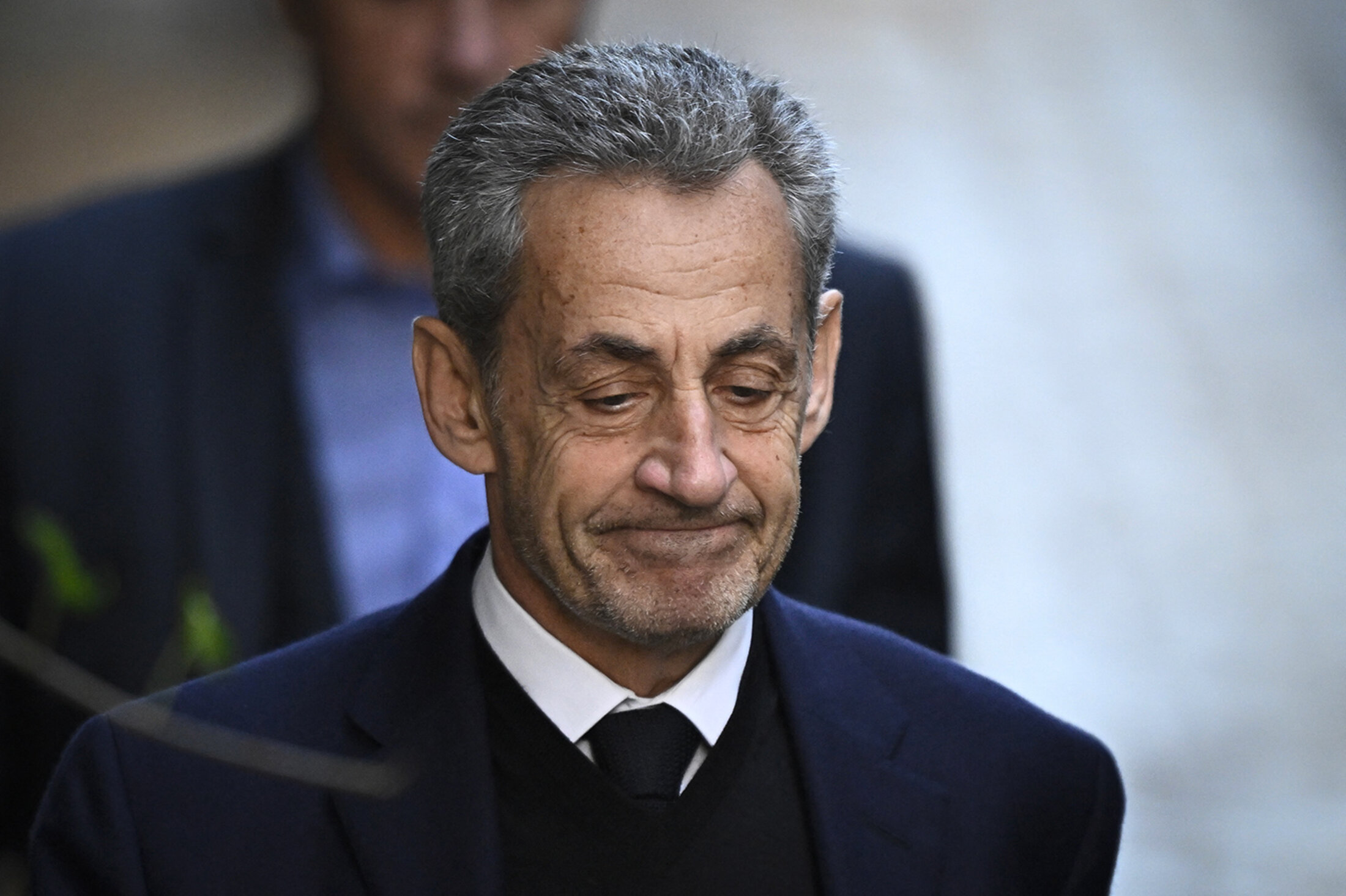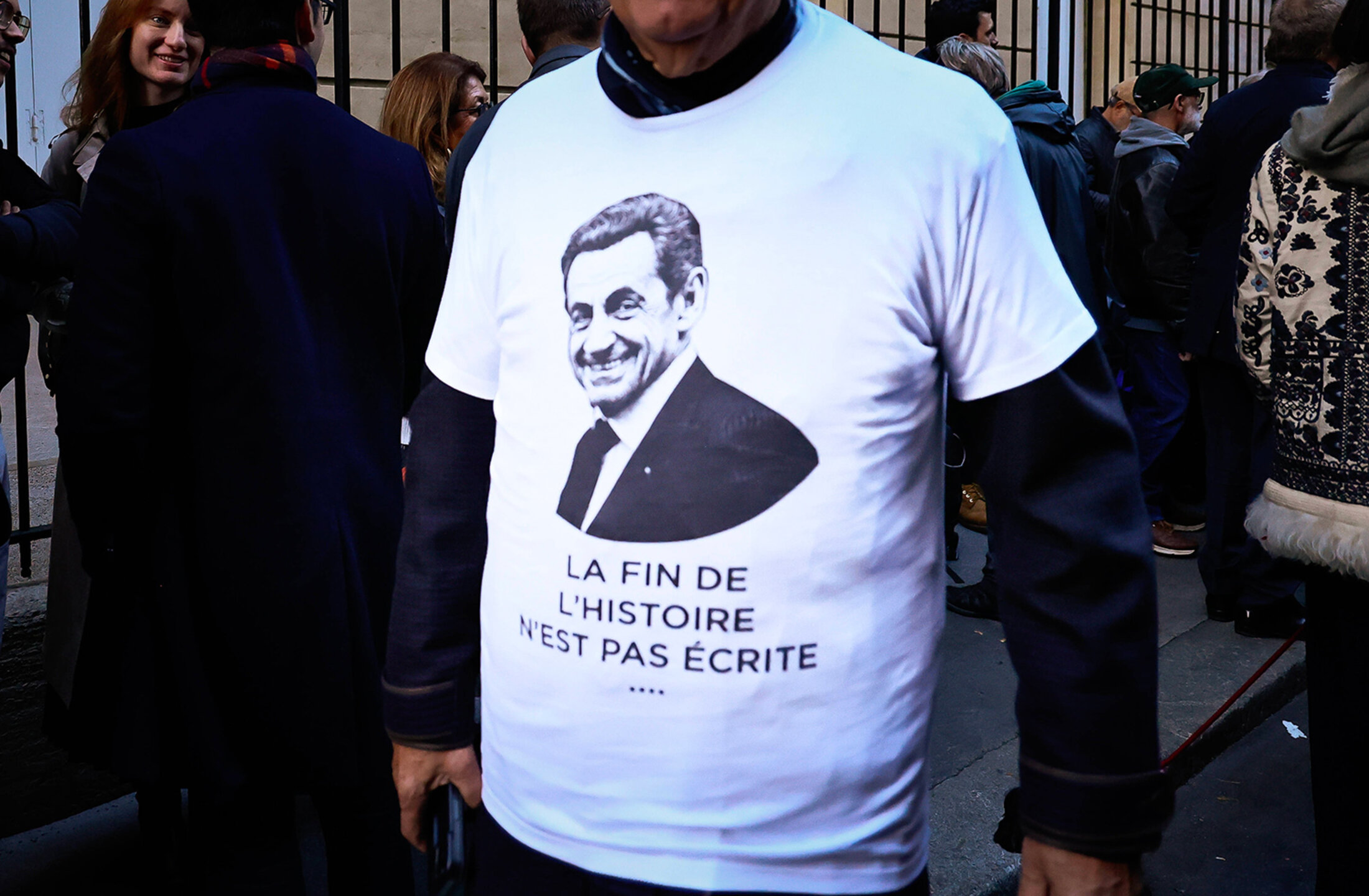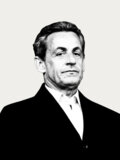Former French president Nicolas Sarkozy has been freed from custody in La Santé prison in Paris where he had started serving a five-year sentence for criminal conspiracy for his role in the Libyan election funding scandal. It came after the 70-year-old ex-head of state made a successful appeal this Monday to the Paris court of appeal against his incarceration.
“It’s hard, very hard, as it surely is for all prisoners. I would even say it’s exhausting,” declared Nicolas Sarkozy declared during the appeal hearing on November 10th, speaking by video link from La Santé prison. “I would never have imagined waiting until I was seventy to experience prison,” he added.
The former president had been sentenced on September 25th to five years in prison for conspiracy in the Libyan election financing case, and was ordered to be incarcerated within weeks. But after spending 21 days behind bars he obtained his release on Monday before court president Olivier Géron, who has already been officially appointed to preside over the appeal trial against the conviction itself, which is due to take place next March.
The presiding judge accepted the arguments of Nicolas Sarkozy’s defence team that there was no risk of evidence being hidden or of him fleeing, leading him to conclude that the former head of state's continued detention could therefore be lifted. His decision was ordered to be sent immediately to La Santé prison, which Sarkozy left that same afternoon to return to his family home in Paris.
However, presiding judge Géron attached several conditions to the release, placing the former head of state under a strict judicial supervision order. The court noted that several defendants and witnesses in the Libyan case live abroad. “As a former president, the defendant naturally has the means to make contact, not so much with these individuals themselves, but with the leaders of the countries where they live or have found refuge,” noted the court in its ruling. It added: “The risk of pressure or collusion therefore cannot be entirely ruled out, not only with regard to the defendants implicated in the charges against Nicolas Sarkozy, but also with key witnesses.”
“It therefore appears justified to ban him from leaving French territory,” the judge said.
The judge also noted that, during the investigation into the Libyan affair, Nicolas Sarkozy personally contacted the head of French domestic intelligence in 2013 about potentially compromising testimony from a former Libyan official. “The very fact of this contact raises questions for the court,” said Olivier Géron.
The court president also recalled Nicolas Sarkozy’s final conviction for corruption in the so-called Bismuth phone-tapping affair, a “case which implicated a senior advocate-general of the Cour de Cassation [editor's note, France's top appeal court] who was definitively convicted”.

Enlargement : Illustration 1

These converging factors led the court to decide that “for the serenity of the proceedings” and to preserve the “independence of the judiciary”, Nicolas Sarkozy should be banned from contacting several dozen individuals. Among them was the serving justice minister - with the court adding “whichever minister it may be” - as well as members of his ministerial office.
The current justice minister Gérald Darmanin, in a breach of convention, had in fact visited Nicolas Sarkozy at La Santé prison, prompting concern among several senior magistrates, including the current Attorney-General at the Cour de Cassation, Rémy Heitz, and his predecessor, François Molins.
Hearing by videolink
It was 9.30 am on Monday that Nicolas Sarkozy had appeared by videolink on the screens of the courtroom, seated at a school desk beside his two lawyers, Jean-Michel Darois and Tristan Gautier. Pale-faced, in a blue jacket, he looked towards the screen showing the courtroom. Only his open-necked blue shirt betrayed his status as a prisoner. On screen appeared the caption: “PARIS LA SANTÉ – VISITNG ROOM 3”.
“I know this isn’t the place to plead the substance of the case. I never had the crazy idea of asking Mr Gaddafi for any kind of funding, and to flee from justice would be to confess,” he said, his face drawn. “I will never admit to something I haven't done.”
Seeking to dispel fears of collusion with his co-defendants, Nicolas Sarkozy insisted he had had no “contact” with former close aides and colleagues Claude Guéant or Brice Hortefeux during the four months of the Libyan trial. He had also “scrupulously answered every summons”. And he was not going to flee “after three weeks at La Santé” the ex-head of state insisted. “I'm French, I love my country, my family, my children. I'm fighting for freedom to prevail.” He paid “tribute to the prison staff”, “who have shown exceptional humanity, which has made this nightmare bearable”.
His family was present at court, in the form of his wife Carla Bruni and two of his sons, Jean and Pierre Sarkozy. Dressed in a black coat, looking drawn, his wife greeted her husband’s aides before sitting down sadly. “How are you?” asked the former president's press officer Véronique Waché. Carla Bruni lowered her head with a grimace.
I will answer your questions, Mr President.
To prevent any leaks of images, journalists, the public and relatives were asked to switch off their phones and seal them in adhesive envelopes under the watchful eyes of the many gendarmes posted in the room.
“We're here to examine your request for release,” said court president Olivier Géron, addressing the videolink screen.
“I will answer your questions, Mr President,” replied Nicolas Sarkozy.
Olivier Géron reviewed the investigation into the affair, from the first police custody to the most recent charges and the trial itself. He listed the political posts held by the detainee, from the RPR party to the UMP party – both forerunners of the rightwing Les Républicains - from his mayor’s office in the well-heeled Paris suburb of Neuilly-sur-Seine and the Hauts-de-Seine département or county council west of the capital, to his term as president from 2007 to 2012. The presiding judge also recalled the convictions and sentences already handed down to the former head of state.
Three years in prison, two of them suspended, in the Bismuth affair phone-tap case, with the sentence served this year while undergoing electronic monitoring. And one year in prison, six months of which were suspended, in the case of the illegal funding of his 2012 campaign. “And, moreover, you are under investigation for witness tampering involving Ziad Takieddine, who was prosecuted in this case [editor's note, the Libyan funding affair] and who died in September,” noted the judge.
Olivier Géron then read out the defendant’s declared income: 638,000 euros in salary, 153,000 euros in pension, 2.3 million in non-commercial income, and 1.3 million in investment income.
The words of France’s most famous prisoner
“What exactly is your professional activity?” asked the judge.
“Mr President, I have two professional activities. I am a lawyer, and owner of a law firm, and secondly I am a lecturer, if one can put it that way. I am invited to give talks.”
“It says here 638,000 euros in salary – I haven’t quite understood...”
“That’s my law firm.”
Nicolas Sarkozy explained that he travels frequently for these talks, but “usually only for a day or two”.
One of the assessor judges asked him about the non-commercial income also shown in his financial declaration. “I work as an adviser for a number of companies,” Nicolas Sarkozy added. “How many?”
“Four,” he specified.
The court had to rule on the risks of interference with the forthcoming appeal trial concerning the Libyan case. Presiding judge Olivier Géron referred to an episode involving pressure put on the former head of France's domestic intelligence agency, Patrick Calvar, over the embarrassing testimony of a Libyan official.

Enlargement : Illustration 2

“In June 2013, you contacted Mr Patrick Calvar, though at that point you were only a member of the Conseil Constitutionnel [editor's note, the body that ensure all legislation in line with the French constitution]. Isn’t it somewhat surprising to contact the head of domestic intelligence, who is bound by official secrets [legislation]??”
“In 2013, I had not been placed under investigation or put under judicial supervision,” replied Nicolas Sarkozy. “At the time I had been told that a Libyan, Mr Missousi [former interpreter for Muammar Gaddafi], had made statements about my campaign. I called Mr Calvar to say that if there was another fabrication, I would not hesitate to file a complaint.”
“So, in general terms, you wanted to warn him that you feared manipulation, if I understand correctly?”
“I didn’t fear manipulation, I was certain of it. Information was circulating that Mr Gaddafi’s associates would be given documents [editor's note, meaning French identity papers] if they testified against me.”
President Géron continued with the case of Ziad Takieddine’s false retraction of his evidence in the Libyan case. “You are also charged in a witness tampering case. What is its current status?” he asked.
Nicolas Sarkozy stated that in that case he was under investigation only for “receiving the benefit” of the witness tampering, not with direct subornation of a witness.
“But where does [that case] stand currently?”
“The judges have not yet issued their ruling. I wish to make clear that I deny ever having obtained any information about how Madame Marchand [editor's note, the photo agency boss Mimi Marchand is accused of arranging the interview in which Takieddine retracted his evidence] carried out that interview.”
“Has the end-of-investigation notice been sent?”
“Yes, just to say the investigation is finished.”
“When did it end?”
“February 2025.”
In the courtroom, Nicolas Sarkozy’s lawyer Christophe Ingrain said he was “very moved” to be seeking the release of a former president who was also a “friend”, whom he had seen “every day in isolation” in the jail. He was defending a “detainee who has confronted prison”, “death threats”, and the “screams of a prisoner who had self-harmed”. He dismissed the idea there was any risk of collusion or flight.
Prosecutor’s submissions
Advocate-General Damien Brunet, the equivalent of the public prosecutor in the appeal court, then spoke to make his submissions.
He clarified the legal framework. “Today you are considering the release of a defendant who enjoys the presumption of innocence [editor's note, because Nicolas Sarkozy has appealed his conviction], not a request for the release of a convicted person,” he said.
For the court, the criteria for maintaining pre-appeal trial detention were not the same as those that justified the imprisonment of the former president, namely the “exceptional gravity” of the offences found by the lower court, he said.
Under Article 144 of the Code of Criminal Procedure, detention must be the “only means” for the court to ensure that evidence or material clues do not disappear, to prevent pressure on witnesses and/or collusion with other defendants, to protect the accused, and to avoid any risk of flight.
“It's therefore necessary to examine with the utmost care the risk of such acts being repeated.”
Damien Brunet emphasised the “guarantees” of turning up for any required judicial appointments that had been offered by the former head of state, who had always responded to every summons (police custody, being placed under investigation and trial). Nonetheless, if release were granted, it should be strictly supervised, he argued. The magistrate in turn recalled that Nicolas Sarkozy had already been definitively convicted of corruption in the Bismuth case and convicted on appeal for illegal campaign funding in the Bygmalion illegal election funding case, both offences that were also central to the Libyan scandal.
“It's therefore necessary to examine with the utmost care the risk of such acts being repeated ,” said Damien Brunet, again referring to Nicolas Sarkozy being under investigation for receiving the benefit of witness tampering and for conspiracy in the case of Ziad Takieddine’s false retraction.
The magistrate underlined a “risk of collusion” with his co-defendants, foremost among them Brice Hortefeux and Claude Guéant, his two closest associates, who, according to the judgment at first circumstance had negotiated in 2005 with the Libyan regime, under the authority and on behalf of Nicolas Sarkozy, a corrupt pact with the aim of secretly financing the 2007 presidential campaign. All those involved deny the charges.
The Advocate-General therefore requested that Nicolas Sarkozy be placed under “tight” judicial supervision, forbidding him from meeting “in any way whatsoever” with his co-defendants and the witnesses in the appeal trial.
In the end, the court went even further.
-----------------------------------------------------------------------------------
- The original French version of this report can be found here.
English version by Michael Streeter



